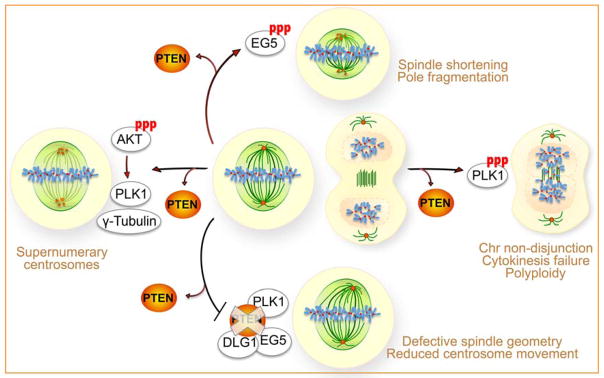Figure 4.
PTEN controls the mitotic machinery by maintaining normal architecture of the mitotic spindle and promoting high-fidelity chromosome alignment and segregation. In the absence of PTEN, aberrant phosphorylation of AKT mediates increased cellular repository of both γ-Tubulin and PLK1, leading to centrosome amplification [46]. Loss of PTEN phosphatase function results in hyperphosphorylation of PLK1 and EG5, which causes spindles shortening, spindle pole fragmentation, chromosome misalignment and non-disjunction, polyploidy, as well as mitotic catastrophe [23, 24]. Depletion of the PTEN C-terminal PDZ binding domain impairs the formation of a PLK1-PTEN-DLG1-EG5 complex on prometaphase centrosomes, leading to a reduction of centrosome movement [22]. Therefore, PTEN promotes mitotic spindle assembly and stability by facilitating the formation of a protein complex associated with centrosome maturation [22] and by suppressing phosphorylation of multiple proteins responsible for mitotic defects associated with PTEN loss [23, 24, 46].

